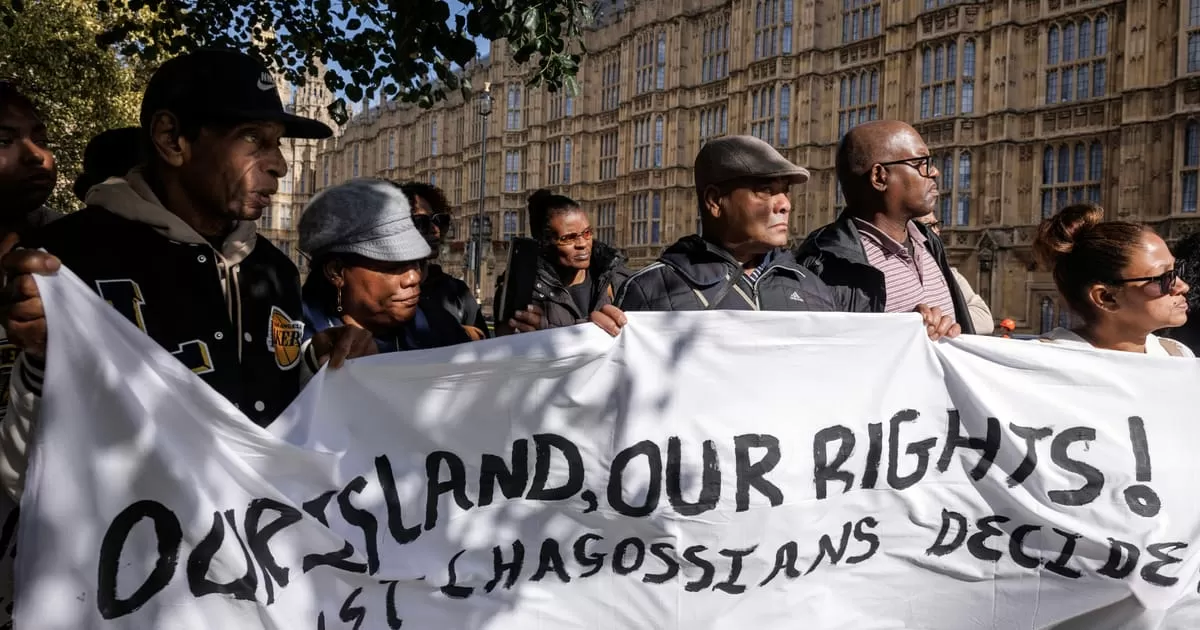After more than 50 years of dispute, the United Kingdom has finally decided to pass sovereignty of the Chagos Archipelago back to Mauritius. This decision has been long-awaited and marks a significant step towards righting a historical wrong. The move has been met with both joy and relief by the Mauritian people, who have been fighting for the return of their land for decades.
The Chagos Archipelago, a group of islands in the Indian Ocean, has been at the center of a territorial dispute between the U.K. and Mauritius since the 1960s. In 1965, the U.K. detached the islands from Mauritius, then a British colony, and established a military base on one of the islands, Diego Garcia. The indigenous Chagossians were forcibly removed from their homes and deported to Mauritius and Seychelles, where they have faced decades of hardship and displacement.
For years, the Chagossians and the Mauritian government have been campaigning for the return of the islands and the right to self-determination. However, their efforts were met with resistance from the U.K., which argued that the islands were crucial for its national security and that the Chagossians had no right to return. This led to a series of legal battles and diplomatic tensions between the two countries.
But now, after more than half a century, the U.K. has finally agreed to pass sovereignty of the Chagos Archipelago back to Mauritius. This decision comes after a ruling by the International Court of Justice (ICJ) in February 2019, which stated that the U.K. had illegally separated the islands from Mauritius and that it must return them to their rightful owner. The U.K. initially rejected the ruling, but after facing mounting pressure from the international community and the Mauritian government, it has finally decided to comply.
So, why now? Why has the U.K. suddenly decided to give up control of the Chagos Archipelago after all these years? The answer lies in the changing global political landscape. With the rise of decolonization movements and the increasing focus on human rights and self-determination, the U.K.’s actions in the Chagos Archipelago have come under intense scrutiny. The ICJ ruling was a wake-up call for the U.K. to acknowledge and rectify its past mistakes.
Moreover, the U.K.’s decision to return sovereignty of the islands to Mauritius can also be seen as a step towards strengthening its relationship with the African continent. The Chagos Archipelago is located in the African Union’s maritime zone, and the U.K.’s continued control over the islands has been a source of tension between the two. By returning the islands to Mauritius, the U.K. is not only fulfilling its legal obligations but also improving its ties with African nations.
This decision also reflects a shift in global attitudes towards colonialism and imperialism. The U.K. has been facing increasing pressure to address its colonial past and make amends for the harm it has caused to indigenous communities. By returning the Chagos Archipelago to Mauritius, the U.K. is taking a step towards reconciliation and acknowledging the rights of the Chagossians.
The return of sovereignty of the Chagos Archipelago to Mauritius is a historic moment for both countries. For Mauritius, it is a long-awaited victory and a chance to reclaim its land and sovereignty. For the Chagossians, it is a glimmer of hope for a better future and the possibility of returning to their ancestral homes. And for the U.K., it is an opportunity to right a wrong and move towards a more just and equitable world.
The Mauritian government has already announced plans to establish a Truth and Reconciliation Commission to address the injustices faced by the Chagossians and to facilitate their return to the islands. This is a crucial step towards healing the wounds of the past and building a better future for all involved.
In conclusion, the U.K.’s decision to pass sovereignty of the Chagos Archipelago back to Mauritius is a significant and positive development. It is a testament to the power of perseverance and the importance of upholding international law and human rights. This move sets a precedent for other countries to address their colonial legacies and work towards a more just and equal world. The return of the Chagos Archipelago to Mauritius is a victory for justice, and

